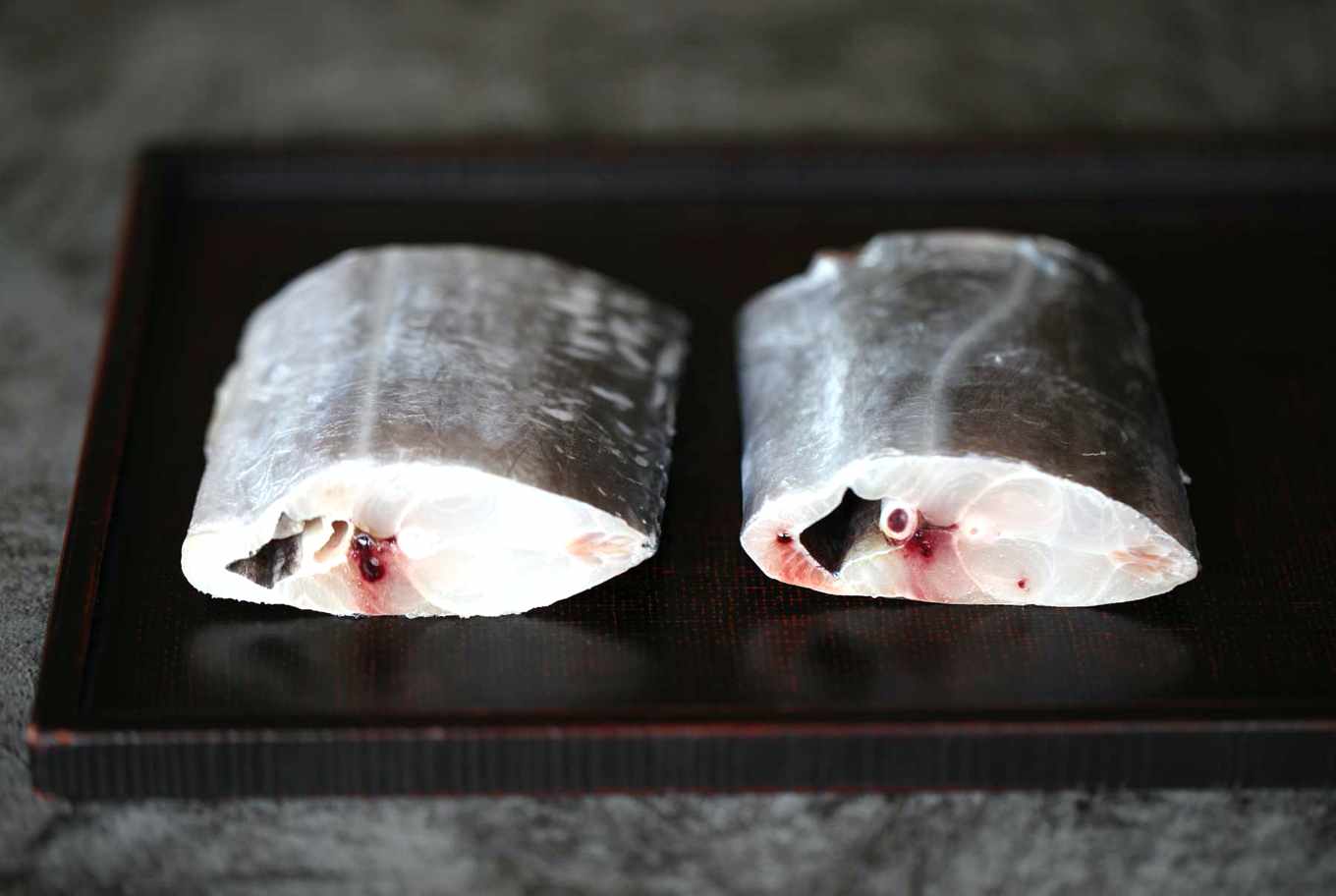In winter, we must eat six kinds of fish "mullet, white belt fish, red d, midday larva, sea bass, sea bass eel, delicious and smart!"
0share
As a common saying goes, "if the north wind is strong, your belly will be full", which means that when the northeast monsoon blows, the fishermen are happy to have a bumper harvest and their stomachs are full. The reason is that the temperature and water temperature drop from the northeast monsoon, or the northern migratory fish come south to Taiwan for the winter, or the schools of fish on the ocean floor swim to the sea level to avoid the cold, all of which are beneficial to fishermen.
Fish to avoid winter, but also to prepare for the spring breeding season, so the body hoarded a lot of fat, fish meat is particularly mellow and fat. Fat-rich fish are rich in protein and Omega-3 fatty acids, and fish meat contains relatively few saturated fatty acids and trans fatty acids, it can be said that fish has a "good oil".
Leading the way, Shengsheng Ocean founder Xu Chengyi recommended six kinds of good fish to eat in winter; Wu Yu-ying, sales manager of the Taipei Fisheries Transportation and Marketing Company, taught how to choose frozen fish; and Liu Xinyi, a fisherman's daughter, taught how to cook fish cuisine. This winter, let's eat fish and oil together and become smarter together.
.jpg)
.jpg)
Grilled seaweed with grilled cheese is a favorite food for children, and it is also a good dish to serve with wine. (courtesy of Liu Xinyi) Wild mullet is covered with "oil belt" white belt fish only in winter.
The black mullet, alias "Taiwan Wujin," the Winter Solstice comes to the coastal waters of Taiwan every year, so there is a common saying that "it is the right time to go on a diet in winter." Mullet is full of treasure, which is the "year-end bonus" that fishermen look forward to year after year. Mullet roe, mullet fat, and mullet fillet are known as the "three treasures of mullet". Mullet roe can be thinly cut off wine, mullet fat can be dried and fried with garlic, mullet roe can be crisp fried or stir-fried. The fish body that takes eggs is called mullet shell. Whether it is mullet rice noodles, braised mullet and three cups of mullet, they are all well-known ancient early dishes.
Hsu Cheng-Cheng says that proverbs such as "saltwater black cuttlefish is better than chicken hoops" (mullet tastes better than chicken legs) and "like sipping mullet rather than wearing pants" (you'd rather pawn your pants than eat mullet) and other proverbs can tell how much Taiwanese like mullet. Although the technology of culturing mullet in Taiwan has improved, fishermen value mullet roe. Therefore, fish eggs are more important than meat. Although the quality of fish eggs is good, the meat may be too oily and affect the taste. Relatively speaking, wild mullet meat is more suitable for consumption.
White belt fish can be said to be one of the most common species on the table in Taiwan. Hsu Cheng-Chen explains that the Japanese belt fish commonly known as "thin belt" were caught in Ilan and Keelung, while those caught in Taichung and Miaoli after December were "oil belt." judging from the name alone, the oil belt must be tastier than the thin belt, and there is a great price difference between the two. Because most of them are exported to China, only 2,000 to 3,000 metric tons are sold to Taiwan every year. If you see the oil belt in the market, don't miss it easily.
As for the best products such as wild mullet and oil belt, how to identify them? Xu Chengyi suggests that in addition to choosing trusted fishmongers, they can also choose people to ask questions from time to time, and fishmongers are more likely to tell them frankly in full view of the public.


Fat and beautiful oil belt (photo courtesy of Xu Chengyi) Red and afternoon larvae are found in all seasons, but winter fish are much fatter than summer fish.
Red can be caught in all seasons, but the fish in summer are thin and not as plump and delicious as winter fish. Xu Chengyi said that in the past, there were many red d smuggled by China, but in the past two years, the government has been strict with them, and the smuggling situation is much less, so almost all the red d caught or bred in Taiwan are bought in the market, and it is appropriate to send the fattest of them to import at this time.
Red fish can be eaten all over the body. except for sashimi, fish heads can be boiled into hot pot or flavor soup, and even fish bones after taking meat can be cut and baked, and finally sprinkle with Shanghai salt and squeeze a few drops of lemon juice, which is a good companion for wine.
Afternoon larvae are also farmed and supplied throughout the year, but Hsu Cheng-Kai stresses that the top-grade "Dayu" and "Bamboo Wat" will only swim back to Taiwan in winter. Whether it is "one afternoon, two Pomfret, three"
- Prev

The creation of Hsinchu Wen Museum is revitalized! Mitsui Restaurant Group will be stationed
There will be a queue of famous shops in Hsinchu City. Lin Zhijian, mayor of Hsinchu, announced on the 24th that due to the extremely high consumption power in Hsinchu area, Shangyun Investment Co., Ltd., a subsidiary of Mitsui Catering Group, will invest 820 million yuan to renovate Hsinchu Mansion Hall.
- Next

In winter, you must eat six kinds of fish "mullet, white belt fish, red d, midday larva, sea bass, sea bass eel, delicious and make you smarter!"
In winter, you must eat six kinds of fish "mullet, white belt fish, red d, midday larva, sea bass, sea bass eel, delicious and make you smarter!"
Related
- A course of planting techniques and methods on how to grow carrots
- How to plant the latest tulips?
- Is it better to pick tea in the morning or in the afternoon? When is the best time for tea to be picked? what is the third or fifth tea?
- Launch Yuanxiao Happy combination Haocha + Tea Yuan healthy Taste
- Penghu Tourism "Fireworks 20 Parade with You"
- 2022 West Lake Happiness holds "Digital Revitalization Voucher" and draws iphone13 and laptop.
- Banqiao Fuzhou social houses are designed to change start-up combined with police elimination to create a safe and livable environment
- The convenient measure of "mechanical weeding" in Xinbei has been abused and the Agriculture Bureau has imposed heavy penalties on the illegal land consolidation.
- Changgeng University Joins Hands with Four Memory Factories to Rescue Memory Talent Shortage
- The list of Taiwan's top 100 MVP managers is listed by the Director-General of the Farmers' Association of Sanxia District.

